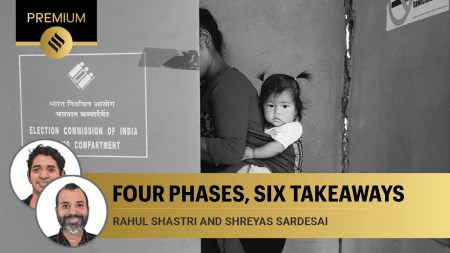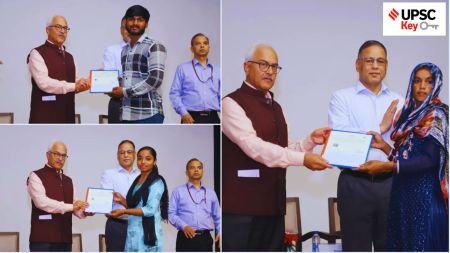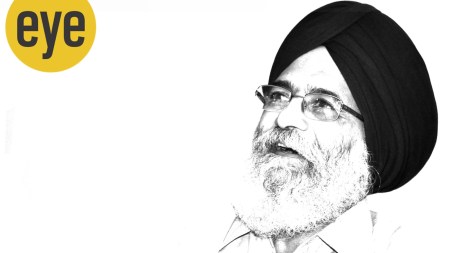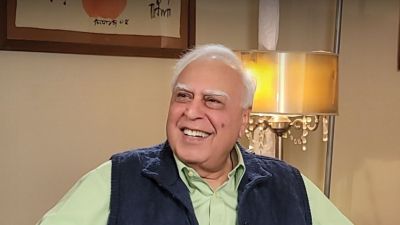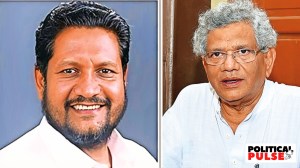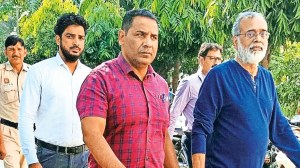- India
- International
78% parents in rural India want their daughters to study till graduation & beyond: Report
According to the survey, one-fourth of male children dropped out of school during primary schooling. The dropout rate at this stage was higher for female children at nearly 35 per cent.
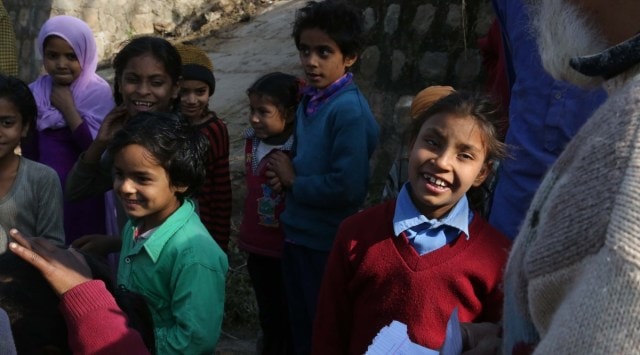 64.2 per cent students study under the supervision of their mothers (Express photo by Jaipal Singh/ Representative Image)
64.2 per cent students study under the supervision of their mothers (Express photo by Jaipal Singh/ Representative Image) Seventy-eight per cent parents of girls in rural areas want to educate their children to graduation and above and 82 per cent parents of boys in rural areas want to educate their children, as per a report that was launched on Tuesday by the Union Minister for Education, Dharmendra Pradhan
The first ‘State of Elementary Education in Rural India’ report is based on data accumulated from 6,229 rural households across 20 states. The study was focused on children in rural communities between the age of 6 to 16 years.
Out of the 6,229 rural households surveyed, 6,135 had school-going students, 56 had students who dropped out of school and 38 had children who had never enrolled in school.
Out of the 56 students who had dropped out of school, 36.8 per cent of parents of girls stated that their daughters dropped out of school as there was a requirement to help out in the family’s earnings. While 31.6 per cent of parents said that their children dropped out due to lack of interest in studies. And, 21.1 per cent parents believed that their daughters had to take care of household chores and siblings at home.
A total of 71.8 per cent parents of boys said that the main reason for their sons to drop out of school was the lack of interest. While 48.7 per cent said it was because they had to help out in family’s earnings.

According to the survey, one-fourth of male children dropped out of school during primary schooling. The dropout rate at this stage was higher for female children at nearly 35 per cent. Nearly 75 per cent boys and 65 per cent girls dropped out of school after completing primary school education.
The main reason for this can be non-availability of schools with higher classes within the village or nearby villages.
According to the report, 40 per cent of parents said that they have age-appropriate reading material other than school books available at home. “63 per cent of the households have a designated place for study and 83 per cent of households provide uninterrupted study time at home,” stated the report. Only 40 per cent parents have conversations with their kids every day around learning in school while 32 per cent have these conversations a few days in a week.
“Among parents who never went to school, 28.7 per cent regularly inquire about school education, while 25.1 per cent rarely or never do so. In contrast, 46.3 per cent of parents with education above higher secondary actively follow up on their child’s education regularly, with only 4 per cent rarely engaging in their child’s education. The survey revealed that 89 per cent of parents participated in extra-curricular activities with their children,” stated the report.
A total of 64.2 per cent of the children were under the supervision of their mothers when it came to studies while 50.2 per cent were supervised by their fathers, 25.6 per cent students study under the supervision of elder sibling, 3.8 per cent under the guidance of Anganwadi workers and 7.6 per cent are taught by community teachers. Over 38 per cent of parents opt for private tutors. And, 26.7 per cent children study under the supervision of private tutors.
About 84 per cent of parents stated that they regularly attended parent-teacher meetings. A total of 73 change vectors from Madhya Pradesh and Jharkhand were interviewed to understand the community aspects and out of them, 93.4 per cent said that parents regularly attend parent-teacher meetings in their village. The main reasons for not attending the meetings were short notice and lack of willingness.
A total of 55.7 per cent of respondents felt that higher education is affordable while 31.3 per cent believed otherwise.
The survey revealed that 49.3 per cent students have access to smartphones in rural India. Out of which, only 34 per cent use it for study downloads and 18 per cent of students access online learning via tutorials. 58.32 per cent students belonging to Class 8 or above have access to smartphones and 42.1 per cent between classes 1 and 3 have access to it.
The report is conducted by the Development Intelligence Unit (DIU), a collaboration between Transform Rural India and Sambodhi Research and Communication Private Limited.
May 17: Latest News
- 01
- 02
- 03
- 04
- 05


